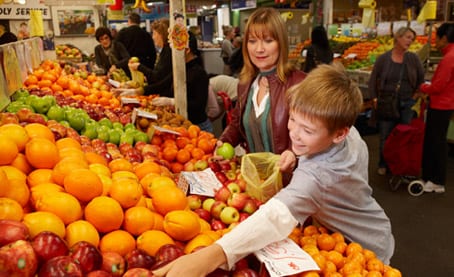Depending on who you talk to, the world’s impending ‘food crisis’ can be seen from many angles.
Farmers will talk about decreased productivity, climate change scientists about the increased likelihood of severe weather events, economists about economic consequences, and health experts about the rising incidence of diet-related diseases.
Different emphases, but together all are vital for ensuring an interconnected chain of food production that can sustain humanity.
Recognising this, Curtin University has put great effort into its new International Institute of Agri-Food Security.
The institute incorporates multidisciplinary research teams from across Curtin’s five teaching areas.
Western Australia’s Department of Agriculture and Food, and industry partners, are also on board.
The highly integrated approach shows how important it is to address food security in a co-ordinated manner.
The institute’s agenda is broad, but targeted aspects of food production will be probed.
These include using Indigenous and heritage crops – known for their robustness in the face of climate change as well as their health-promoting ingredients, implementing post-harvest practices that boost food quality; and the role of local supply chains in supporting socio-economic development especially in rural and remote areas.
The institute will draw inspiration from the slow food movement and biodiversity practices. Health promotion and lifestyle choices will also play vital roles.
Janet Bornman, the 2011 recipient of Curtin’s prestigious Haydn Williams Fellowship, heads the institute.
Professor Bornman completed her doctoral work in plant biology in Sweden, with a research focus on the interactions of different climate change drivers on plants.
She worked as research director at the Danish Institute of Agricultural Sciences before taking up a position at New Zealand’s University of Waikato.
She also chairs the United Nations Environment Programme’s Environmental Effects Assessment Panel, and recently received the Ozone Layer Protection Award from the US Environmental Protection Agency.
“One of the aims of the institute is to provide a research-based platform for promoting education, food tourism and local culture,” Professor Bornman said.
“At the core of the institute’s work is our link to communities that perhaps most need a healthy food supply: rural communities, where food options may be limited; and mining communities, where food is usually trucked or flown in from elsewhere.”
The institute has linked into existing infrastructure, such as the Margaret River Education Centre, where Curtin has a presence.
The FOOD+ postgraduate program for agri-food and health research is also partnering with international organisations to ensure the institute contributes to Curtin’s international presence.
Story adapted from CITE by Andrea Lewis
Photography: James Rogers



